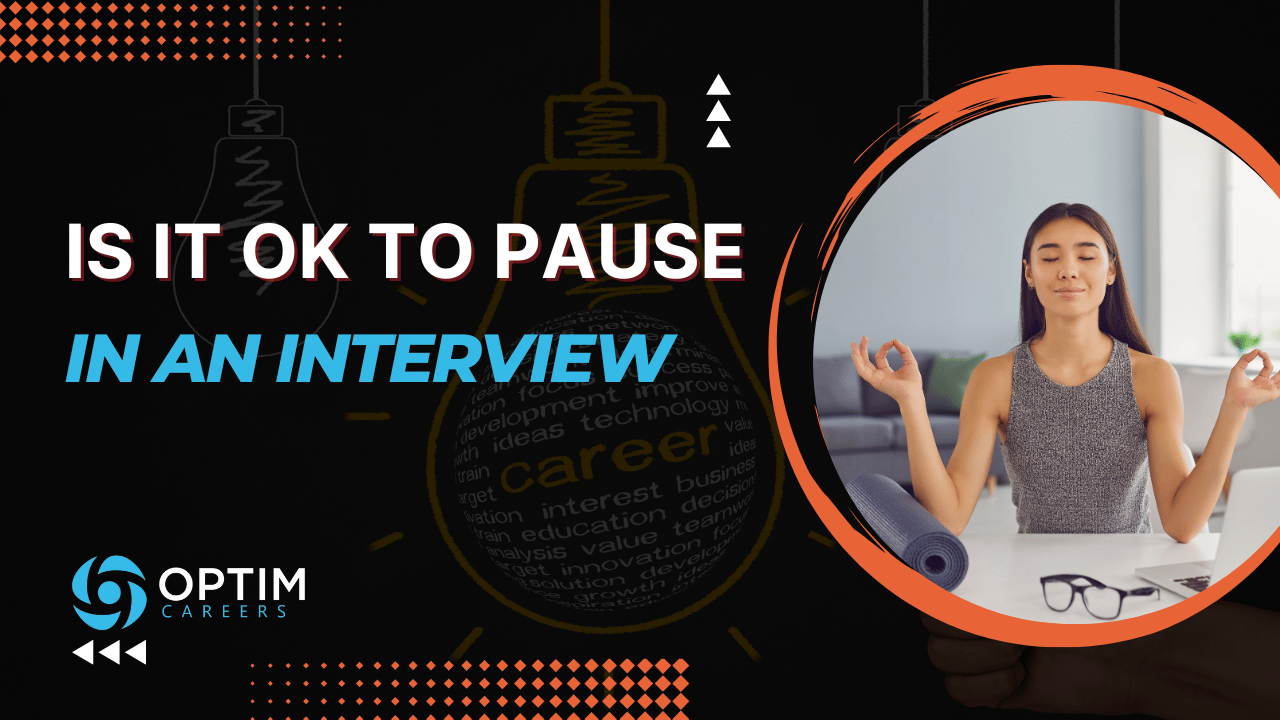Is It Ok to Pause in an Interview - Sometimes
This is a question that I’m asked at least once per month - is it okay to pause in an interview? The short answer is yes. When was the last time you had a conversation nonstop without any pauses? It’s not normal for both people to talk over each other non-stop. Pausing is normal. And in an interview, it may help you avoid what I call impulse answers.
Yet many people find pauses awkward, and they try to fill the dead space by jumping right into speaking. Today, I’m going to tackle how to pause in an interview, why I think it’s important, and when I think it is useful (or not).
Actions Speak Louder Than Words
Pausing can say a lot about who you are and what it will be like to work with you. Many people think that answering quickly shows you are prepared, but there is value in a strategic pause.
If you jump right into every question, most people will assume that is how you will handle your work too - jumping right in. And while, that’s not always a bad thing, in some situations and especially for some jobs, it could be.
If you pause to think about the question you’ve been asked, they might assume that’s how you will behave in the job - taking time to consider what is being asked and not jumping too quickly into your thoughts.
Similarly, if you pause and ask a clarifying question, they’ll think that’s who you are - someone who will fact find and might need more information before formulating a thoughtful response.
So, no, pauses are not bad. In fact, I’ve had some people lose out on jobs because they thought they had to answer quickly instead of honestly and thoughtfully. The latter is almost always appreciated more than a quick delivery. Almost every hiring manager I’ve worked with over the past decade has valued a thoughtful answer over a rushed, prepared, or canned one.
How to Use a Strategic Pause
Announce Your Pause
While I certainly don’t think you have to tell the other person that you are pausing, some people find that announcing what they are doing helps them. It’s perfectly fine to say something like, “Let me think about that” and then pause for a moment to think.
Vary Your Filler Statements
If you’re going to make an announcement, make sure these filler statements don’t sound robotic. Every question shouldn’t be responded to by “That’s an interesting question…”. Some other ideas to mix it up could include the following:
That is a good question, I’ve never been asked that before. Let me think for a moment.
Good question, let me unpack that a bit and think about it for a moment.
There’s a lot that goes into that, give me a minute to think about that.
I like that question. Let me think for a moment.
How Long to Pause
If you’re not used to pausing in a conversation, a few seconds will feel like a lifetime. Trust me, it probably feels longer to you than it does the other person. I would say pausing for around 10 seconds is fine in most situations.
When Is It Ok to Pause in An Interview
In general, it’s fine to pause for a moment and think about the question. However, there are some questions you shouldn’t pause on.
Don’t pause on questions that are straightforward or that you should know the answer to. These include questions like, tell me about yourself or straightforward simple technical questions about how to do the job.
For all other questions, strategically placed pauses can project confidence and control - plus they give you time to think about what you want to say and how you want to deliver it. I would almost consider it a power move.
Also, slowing your speech can project confidence and control vs. rushing words out of your mouth.
Is It Ok to Pause in an Interview Recommended Reading
The 6 Best Interview Coaches I’ve Ever Met
Cole Sperry has been a recruiter and resume writer since 2015, working with tens of thousands of job seekers, and hundreds of employers. Today Cole runs a boutique advisory firm consulting with dozens of recruiting firms and is the Managing Editor at OptimCareers.com.
Get Smarter About Job Search
Members get exclusive job search analysis, a curated coaching feed, and on-demand coaching.



